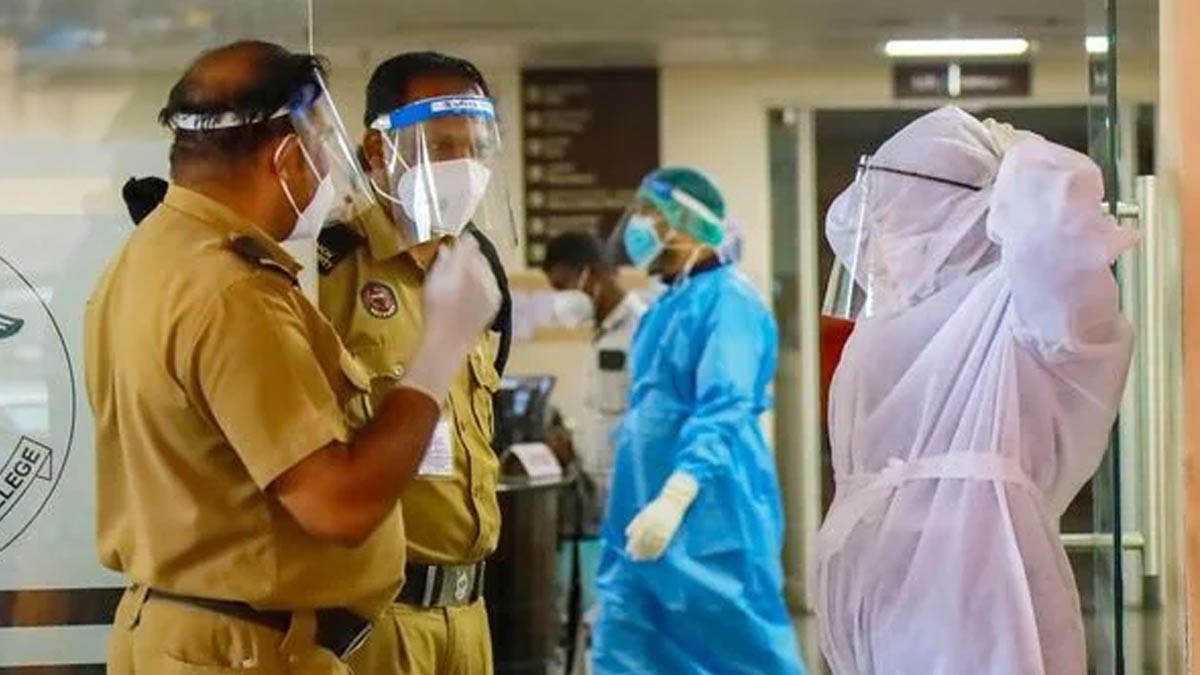
A 14-year-old boy from Kerala's Kozhikode district, who had been battling the highly infectious Nipah virus, succumbed to a massive cardiac arrest, the state's Health Minister confirmed on Sunday. The tragic event has heightened concerns and placed the entire state on high alert as health officials scramble to contain the outbreak.
Table of Content:-
Early Symptoms and Hospitalisation
According to the state Health Department, the boy first developed a fever about ten days ago. His condition worsened rapidly, and by Friday, he required ventilator support at a private hospital in Kozhikode. Despite intensive medical care, his health continued to deteriorate.

The Health Minister’s Statement
Health Minister Veena George provided a detailed account of the boy's final hours. She stated, "The teenager, a resident of Pandikkad, suffered a massive cardiac arrest at 10:50 am on Sunday. Despite all efforts to revive him, he passed away at 11:30 am." Minister George emphasized that the boy had been unconscious and on a ventilator. Additionally, his urine output had decreased significantly on the morning of his death, which further complicated his critical condition.
Adhering to International Protocols
In her address, Minister George also mentioned the measures being taken to handle the boy’s funeral according to international health protocols. "Further matters regarding the funeral will be decided only after the district Collector holds a discussion with the parents and the family," she added. This cautious approach underscores the gravity of the situation and the need to prevent any further spread of the virus.
Also Read: Mumbai Faces Surge In Monsoon Diseases: Over 1,300 Cases Of Such Diseases Reported
Nipah Virus Outbreak in Kerala: State's Response
In response to this case and to mitigate the risk of a larger outbreak, the Kerala Health Department has set up extensive isolation facilities. Specifically, 30 isolation rooms and a six-bed Intensive Care Unit (ICU) have been established at Manjeri Medical College. The department has also isolated all individuals who had come into contact with the infected boy.
Current Status of Isolated Individuals
Minister George informed the public that four people are currently under isolation at Kozhikode Medical College, where the boy was treated. "One of them is critical and on life support," she said. The test results for these individuals' samples, sent to the National Institute of Virology (NIV) in Pune, were expected on Sunday evening.
Enhancing Testing Facilities
Given the urgency of the situation, the state has bolstered its testing capabilities. Although the government medical college hospital in Kozhikode and the Virology Lab in Thiruvananthapuram have the capacity to test samples, a mobile lab from NIV-Pune will be brought to Malappuram for additional testing. "Samples of all those in the high-risk category will be tested," the Minister assured, highlighting the proactive steps taken to control the virus’s spread.
Vigilance and Preventive Measures
The death of the young boy has intensified the need for vigilance across Kerala. The state's health authorities are not taking any chances, implementing rigorous measures to track and isolate potential cases. Public awareness campaigns are being ramped up to educate people about the symptoms of the Nipah virus and the importance of seeking immediate medical attention if they experience any signs of infection.
Also Read: Maharashtra Reports Highest Ever 28 Cases Of Zika Virus This Year
Looking Ahead
The tragic loss of a young life to the Nipah virus underscores the critical importance of swift and coordinated public health responses. Kerala's health department is working tirelessly to manage the situation and prevent further infections. The coming days will be crucial as the state awaits test results and monitors those in isolation.
Bottomline
As the situation unfolds, the importance of adherence to health guidelines and protocols cannot be overstated. The state of Kerala remains on high alert, with health officials urging the public to stay informed and cautious. This incident serves as a stark reminder of the unpredictable nature of infectious diseases and the relentless efforts required to combat them.
Also watch this video
How we keep this article up to date:
We work with experts and keep a close eye on the latest in health and wellness. Whenever there is a new research or helpful information, we update our articles with accurate and useful advice.
Current Version